The article below reflects the personal opinions of the author(s) and does not reflect the views or opinions of the Perspectives editors or committee, or the National Society of Genetic Counselors (NSGC).
Our professional societies depend on the time and effort of volunteers to accomplish their goals related to issues relevant to genetic counseling practice, certification, and education. The Accreditation Council for Genetic Counseling (ACGC) engages volunteers in various initiatives and committees. We spoke with five different genetic counselor volunteers to learn more about why they volunteer and how they feel this benefits them.
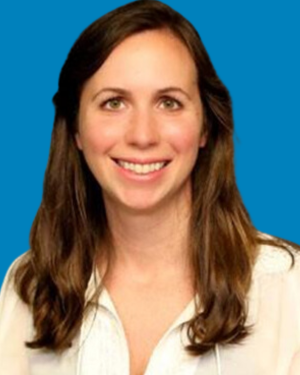 Jessica Denton, MS, CGC, is the assistant program director at the University of Alabama at Birmingham. She serves on the Diversity, Equity, Inclusion and Justice (DEIJ) committee as well as through the Program Review Committee as a volunteer reviewer. Jessica is also a volunteer with NSGC and ABGC. When asked about her “why,” she shared that volunteering is an integrated part of the curriculum in her genetic counseling program and that everyone on faculty volunteers for something as part of faculty expectations. When asked about how she balances her time, Jessica shared “I only volunteer for things I think I can make an impact with. Sometimes it means putting other things off — if you care about it enough, you make the time to do it.” Jessica also mentioned that volunteering has helped her make connections from coast to coast which has been helpful, especially in her role of clinical coordination in her genetic counseling program. When asked about how someone new might get involved, she recommends “start small — if you feel like what you’re doing makes a difference it will encourage you to do more.”
Jessica Denton, MS, CGC, is the assistant program director at the University of Alabama at Birmingham. She serves on the Diversity, Equity, Inclusion and Justice (DEIJ) committee as well as through the Program Review Committee as a volunteer reviewer. Jessica is also a volunteer with NSGC and ABGC. When asked about her “why,” she shared that volunteering is an integrated part of the curriculum in her genetic counseling program and that everyone on faculty volunteers for something as part of faculty expectations. When asked about how she balances her time, Jessica shared “I only volunteer for things I think I can make an impact with. Sometimes it means putting other things off — if you care about it enough, you make the time to do it.” Jessica also mentioned that volunteering has helped her make connections from coast to coast which has been helpful, especially in her role of clinical coordination in her genetic counseling program. When asked about how someone new might get involved, she recommends “start small — if you feel like what you’re doing makes a difference it will encourage you to do more.”
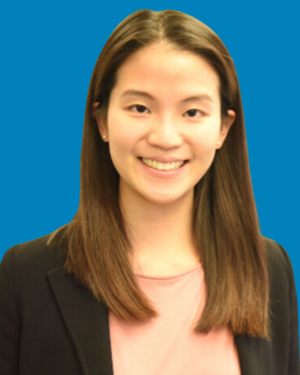 Emily "Pei-Chen" Hsieh, MS, is a genetic counselor at the Swedish Hereditary Cancer Clinic in Seattle. She graduated in 2022 from the MGH Program and saw a call for volunteers that was shared by another volunteer on social media asking for people to join the DEIJ committee. After becoming involved with that committee, she chose to grow her volunteering experience to serve in a role on the Nominating Committee. The advantage of this committee role is that the responsibility has a defined timeframe which takes place during specified times of the year, allowing her to plan accordingly with other responsibilities in her life. Emily is also involved with the Minority Genetic Counselors’ Network, which ultimately served her well as a networking resource when she needed help with professional negotiations early in her career and found someone to talk with and provide excellent advice.
Emily "Pei-Chen" Hsieh, MS, is a genetic counselor at the Swedish Hereditary Cancer Clinic in Seattle. She graduated in 2022 from the MGH Program and saw a call for volunteers that was shared by another volunteer on social media asking for people to join the DEIJ committee. After becoming involved with that committee, she chose to grow her volunteering experience to serve in a role on the Nominating Committee. The advantage of this committee role is that the responsibility has a defined timeframe which takes place during specified times of the year, allowing her to plan accordingly with other responsibilities in her life. Emily is also involved with the Minority Genetic Counselors’ Network, which ultimately served her well as a networking resource when she needed help with professional negotiations early in her career and found someone to talk with and provide excellent advice.
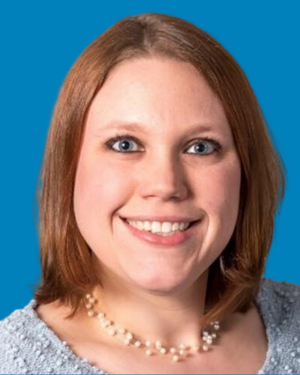 Kate Shane-Carson, MS, LGC, is an associate professor at the Ohio University College of Medicine. She is the chair of the Standards Committee for ACGC and helped lead the recent DEIJ-related updates for the 2023 Standards revision. This included applying more inclusive language throughout the curriculum and feedback sources and drawing attention to the need for a diverse membership of the advisory board. She has also served as a site visitor for ACGC, and volunteers with NSGC, the Midwest Genetics Network and the Ohio Department of Health. Kate says volunteering makes her a better genetic counselor and provides her with a unique perspective on how others are growing and changing. Her advice to those thinking of volunteering with any organization and wondering about time management is to set priorities and think about what volunteer experiences will tie most closely to your values and your career.
Kate Shane-Carson, MS, LGC, is an associate professor at the Ohio University College of Medicine. She is the chair of the Standards Committee for ACGC and helped lead the recent DEIJ-related updates for the 2023 Standards revision. This included applying more inclusive language throughout the curriculum and feedback sources and drawing attention to the need for a diverse membership of the advisory board. She has also served as a site visitor for ACGC, and volunteers with NSGC, the Midwest Genetics Network and the Ohio Department of Health. Kate says volunteering makes her a better genetic counselor and provides her with a unique perspective on how others are growing and changing. Her advice to those thinking of volunteering with any organization and wondering about time management is to set priorities and think about what volunteer experiences will tie most closely to your values and your career.
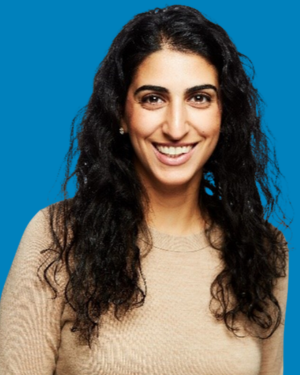 Jessica Kianmahd Shamshoni, MS, LCGC, is an assistant adjunct professor and on teaching faculty for the Master’s in Genetic Counseling Program at UCLA. Prior to her faculty position, Jessica worked as an inpatient and outpatient pediatric GC at UCLA in general and specialty clinics. She currently serves on the ACGC Communications Committee and took part in the Practice Based Competencies Task Force that wrapped up recently. Like many others, she is involved with volunteering for NSGC as well as being involved with her local Southern California Genetic Counseling group. Jessica is deliberate about what she chooses to commit her time to and recommends getting an idea of the number of hours a volunteer role is estimated to require before committing to it. She shares that her volunteer experiences have led her to have a better understanding of the internal structure of these different organizations. When reflecting on these experiences, she said that “volunteering has done more for me than I have done for it” and described the transferable skills she has developed, such as how to lead a group or how to work with a group as helpful as an instructor. Skills she learned by evaluating applications for the annual conference committee for NSGC she has found helpful for use with the admissions committee for her program at UCLA. Along with all of the professional skills she has gained, she also has found she has developed cross-country friendships.
Jessica Kianmahd Shamshoni, MS, LCGC, is an assistant adjunct professor and on teaching faculty for the Master’s in Genetic Counseling Program at UCLA. Prior to her faculty position, Jessica worked as an inpatient and outpatient pediatric GC at UCLA in general and specialty clinics. She currently serves on the ACGC Communications Committee and took part in the Practice Based Competencies Task Force that wrapped up recently. Like many others, she is involved with volunteering for NSGC as well as being involved with her local Southern California Genetic Counseling group. Jessica is deliberate about what she chooses to commit her time to and recommends getting an idea of the number of hours a volunteer role is estimated to require before committing to it. She shares that her volunteer experiences have led her to have a better understanding of the internal structure of these different organizations. When reflecting on these experiences, she said that “volunteering has done more for me than I have done for it” and described the transferable skills she has developed, such as how to lead a group or how to work with a group as helpful as an instructor. Skills she learned by evaluating applications for the annual conference committee for NSGC she has found helpful for use with the admissions committee for her program at UCLA. Along with all of the professional skills she has gained, she also has found she has developed cross-country friendships.
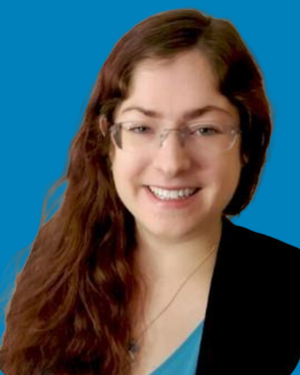 Devin Shuman, MS, CGC, is a genetic counselor who recently shared her positive volunteering experience through a post on LinkedIn, encouraging her colleagues to apply: “ACGC put out a call for volunteers e-blast today. I am a member of the DEIJ committee (who are looking for new members) and am a DEIJ liaison to the Program Review Committee (PRC). Honestly, this experience has been nothing but wonderful. I feel like I better understand our field after only a year of being on the committee, I feel like my voice/opinion is truly valued, and I've met some really awesome GCs! I highly encourage you to apply — and new grads are welcome!”
Devin Shuman, MS, CGC, is a genetic counselor who recently shared her positive volunteering experience through a post on LinkedIn, encouraging her colleagues to apply: “ACGC put out a call for volunteers e-blast today. I am a member of the DEIJ committee (who are looking for new members) and am a DEIJ liaison to the Program Review Committee (PRC). Honestly, this experience has been nothing but wonderful. I feel like I better understand our field after only a year of being on the committee, I feel like my voice/opinion is truly valued, and I've met some really awesome GCs! I highly encourage you to apply — and new grads are welcome!”
As demonstrated by these incredible volunteers, giving your time volunteering is a powerful vehicle for personal growth and development, allowing people to cultivate essential skills, expand their horizons, and make new personal connections. Engaging in volunteer work provides opportunities for skill-building in areas such as leadership, communication, teamwork, and problem-solving. We encourage you to have these conversations with your colleagues, your students, your mentees and whomever else you have in your life that you think could benefit from these same perks by getting involved today.
Andrea Moon, MS, CGC (she/her) is an assistant professor at Baylor College of Medicine. She provides clinical prenatal genetic counseling services through Texas Children’s Hospital and greatly enjoys serving as lead prenatal supervisor for second year students in Baylor’s genetic counseling program, as well as coordinating clinical experiences for residents, fellows and other learners. She is also the co-chair of the Baylor GCP mentorship program.